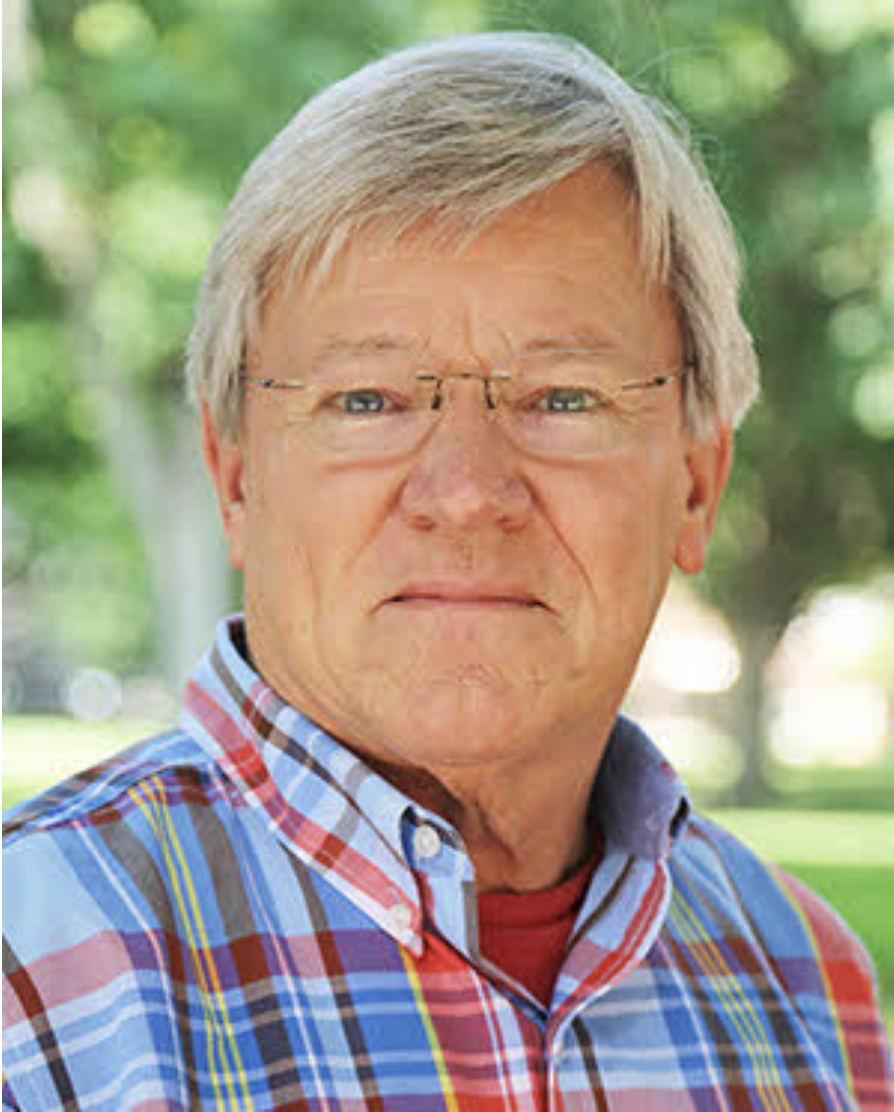When I walked into an interview for an intern position my first year at Goshen College, I greeted Glenn Gilbert, director of facilities, and another man who looked at me through rimless glasses. He introduced himself as Lewis, or Lew Naylor, an adjunct professor of chemistry. Then, before he said another word, his phone let out a “ding” and he says to no one in particular, “I just got approved for a new patent!”
Naylor began a life of science over 50 years ago, starting his career as a high school chemistry teacher. He moved on to graduate school at the University of Northern Iowa. He was offered the opportunity to stay and teach a class, which he claimed to be “some of the most fun I’ve ever had.” Naylor then got his doctorate in science education at Iowa State University.
Although he loved to teach, Naylor found his true passion on accident during a trip to Puerto Rico with Mennonite Central Committee while working on a waste management project.
Naylor found he enjoyed working towards making the environment better. This love led Naylor to work for a number of different companies to develop processes to cut down on waste and preserve the environment. Naylor’s love of trying to improve the condition of the planet would lead him to work on environmental projects all around the globe.
After working in Puerto Rico, Naylor worked on a project for Cornell University. Cornell was burning limestone in massive silos that were rolled constantly to produce calcium oxide, a material with a wide variety of applications.
This produced a massive quantity of dust. Naylor helped to find new uses for this lime dust, effectively turning a pile of waste into a useful product. This project helped to develop a philosophy he’s had since, a goal to find productive ways of recycling resources that others simply discard as waste.
For the past few decades, Naylor has continued to create effective methods of composting and recycling. He has worked with others to spread these methods around the world to help build a better future for the planet.
Naylor has helped design dozens of facilities from China to Switzerland, learned German in Germany and has traveled to Turkey with the International Executive Service Corps to work with bull manure.
Naylor’s work has brought him to New Zealand over half a dozen times to work on different projects and facilities. He remarked about how there are teams of people that all work on these projects, all coordinating with one another to bring about change in the world.
Naylor built good working relationships with team members in New Zealand. On one such trip, he brought his wife Ann Naylor, staying with a colleague, Roger Walk, spending three weeks traveling around the country together and having a wonderful time.
In recent years, Naylor has slowed down his international travels. No longer jetting off to exotic locations, he prefers to stay at home in Goshen, though still looking out for what he calls “the Creation.” He spends his days receiving phone calls from professionals in the field still seeking out his expertise on processing compost and other materials.
While he may not be designing composting plants in China, he still plays his part in improving the environment. In 2010, Naylor was brought in alongside Gilbert and AVI Foodsystems to a discussion about starting a compost system at Goshen College. He developed a simple composting box out of Styrofoam, which later became the large compost bins still in use.
Naylor often can be found working on projects just for the sake of doing them. The summer of 2017 he asked me to come with him as he tested the water quality of his own neighborhood’s pond system. He had not been contacted to do so, he simply saw a way to better his own neighborhood and got permission to do so.
Naylor looks to do the same tests this coming summer, never able to sit back for long as he looks for that next project to pass the time.
The work he does for the environment is only a part of Naylor. He is always quick to help others and show appreciation for their endeavors. Since meeting Naylor two years ago, I never fail to receive a card from him near the end of every semester and at each holiday. Naylor is always willing to take the time to talk with you and excited to see you learn and grow.
Naylor said, “The Earth is God’s creation, and we are his servants. It’s our responsibility to protect the creation in any way we can.”
He said his faith has taught him that we owe it to the planet and to one another to do what we can to preserve our world but also to foster growth. He believes that we all have the potential to make the world better, even if all we can do is something small.
Naylor dedicated his career to protecting the environment, but he has dedicated his life to helping those within it to grow.



